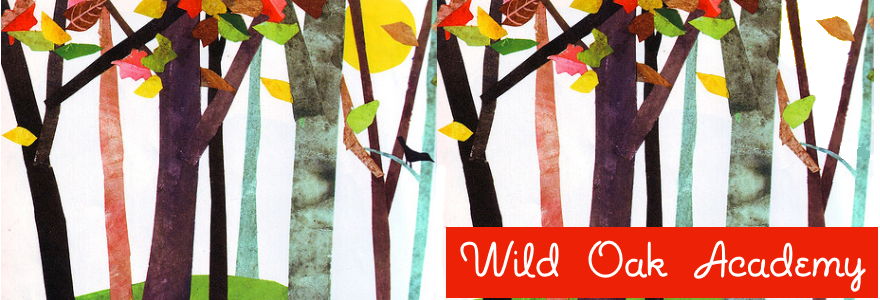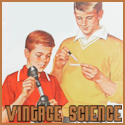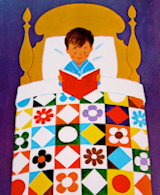"Marguerites sur fond bleu,"Albert Marquet, c. 1943/44
This was, quite simply, the week that was too much. We took last week off so that I could schedule all of our new curricula, and it seems that I went a wee bit overboard. Despite having been at this for two years now, I appear to be incapable of finding that perfect happy medium - just the right balance of work. This week the kids spent an average of 7-8 hours per day on school work (solidly working) and still didn't get everything done. Looking over everything we did this past week, I'm honestly not even sure what was so time consuming. This weekend I'll be revisiting my master schedule to see how it might be adjusted, though the very thought makes me cringe because I had everything arranged so precisely.
My current plan is that we'll continue school through the end of May, break for the month of June (so that we can move to Oregon!), and resume work in July. Hopefully that's doable. In the upcoming months I've got to get our house ready to sell, declutter like crazy, and of course, pack. My husband has already been living in Oregon for some time, so will not be around to help, lucky him! Needless to say, when I made our recent curricula changes to such teacher-intensive programs, I was not considering all of this!
Religion
This week, we begin using Faith and Life: Following Christ from Ignatius Press and I really love it! It is exactly what I'd hoped to pull together on my own, but never found time to do.
I deliberated on whether or not to buy the Teacher's Manual, but am so glad I did. It's a massive book (truly), but is incredibly helpful for scheduling purposes and includes valuable supplemental materials.
- We had one lesson per day and one activity page from Faith and Life: Following Christ.
- The kids memorized the following catechism questions: CCC 1692, CCC 2055, CCC 2072, CCC 1855, 2072, in addition to the Ten Commandments.
World History
Recently I purchased, and fell utterly in love with, The Usborne History of Britain (preview here). Primarily because of this book, I decided that we needed to add world history back into our schedule.
- On Monday, we read about Louis XIV, the Sun King of France, in The Story of the World, Vol. 3 and completed the mapwork in the activity book. We also enjoyed browsing through this Versailles photo set on Flickr.
- On Tuesday, we watched "The Man in the Iron Mask," set during the reign of King Louis XIV, and based on the legend of The Man in the Iron Mask.
- On Wednesday, we read about George I of England in Tony Robinson's Kings and Queens and in The Usborne History of Britain.
- My plans for the remainder of the week fell apart because we ran out of time.
U.S. History
- From BJU American Republic, the kids read Chapter 5 (one section per day over four days) about the French and Indian War and completed the corresponding pages from the Student Activity Manual. This kept them very busy! This was our first week using American Republic as our spine and it had poor M in tears a number of times, though J seemed to enjoy it very much.
- The kids watched 3+ episodes of Liberty's Kids per day.
Language Arts
Grammar and Writing:
This week we switched to an updated version of Voyages in English (Loyola Press, 2006). We had been using the 1958 Lepanto Press reprint, which was wonderful, but didn't offer nearly enough practice or review. The new version has the added benefit of a practice book, and, because it so closely correlates to the old version, the old books can still be used if additional exercises are needed for review.
The new books were a smashing success and the kids actually enjoyed grammar this week! Though the content hasn't changed significantly, the full color pages were a nice improvement.
I opted to have the kids start back at the beginning of the grammar section so that they could do the corresponding writing portions in the proper sequence. I adapted these lesson plans for our 2006 books, which made scheduling a breeze.
- Grammar was largely review this week. The kids studied singular and plural nouns, count and noncount nouns, concrete and abstract nouns, and nouns as subjects and subject complements. The kids completed two pages daily from the grammar portion of Voyages in English (an average of four exercises), in addition to the corresponding practice book pages.
- From the writing portion of Voyages in English, the kids completed four activities pertaining to personal narratives, in addition to one practice book page and an assignment on "Introductions and Conclusions."
Spelling:
- For spelling, we completed four lessons plus a review lesson from Dictation Day-by-Day: A Modern Speller by Kate Van Wagenen. Misspelled words were written ten times each.
Literature:
This week's assigned literature selections were: The Sign of the Beaver by Elizabeth George Speare (J) and Calico Bush by Rachel Field (M), both set during the French and Indian War. In the end, this proved way too much reading for them with all of the other work we had this week. J finished his book, but I allowed M to stop after she'd read roughly half the book because she was getting behind on other assignments. J and I discussed The Sign of the Beaver on Friday following Susan Wise Bauer's guidelines for literary analysis.
Next year I'll be handling assigned selections differently, but now I'm pondering how I'll manage them for the rest of this year. Neither of the kids enjoy historical fiction, and while they do occasionally like a book that I've assigned, it's pretty uncommon. I suppose as long as they're reading quality literature, it's not necessary that it be historical fiction that is oh-so-carefully aligned with our history schedule. Neither of them enjoy history and would much rather stick to textbook work.

This week's assigned literature selections were: The Sign of the Beaver by Elizabeth George Speare (J) and Calico Bush by Rachel Field (M), both set during the French and Indian War. In the end, this proved way too much reading for them with all of the other work we had this week. J finished his book, but I allowed M to stop after she'd read roughly half the book because she was getting behind on other assignments. J and I discussed The Sign of the Beaver on Friday following Susan Wise Bauer's guidelines for literary analysis.
Next year I'll be handling assigned selections differently, but now I'm pondering how I'll manage them for the rest of this year. Neither of the kids enjoy historical fiction, and while they do occasionally like a book that I've assigned, it's pretty uncommon. I suppose as long as they're reading quality literature, it's not necessary that it be historical fiction that is oh-so-carefully aligned with our history schedule. Neither of them enjoy history and would much rather stick to textbook work.

- On Monday, we reviewed the definitions of connotation and denotation from Figuratively Speaking and read about "The Ways a Poem Suggests" (from An Introduction to Poetry by X.J. Kennedy -- an amazing resource, by the way). We read and discussed "There is no frigate like a book" by Emily Dickinson and then completed this lesson about connotation and denotation in poetry.
- On Tuesday, we learned about hyperbole in poetry. We listened to and discussed "Sarah Cynthia Sylvia Stout" by Shel Silverstein from Where the Sidewalk Ends (25th Anniversary Edition Book and CD) (loosely following this lesson plan), and also identified and discussed hyperbole in "The Dirtiest Man in the World," by Silverstein. The kids were then asked to write a poem utilizing hyperbole. They had so much fun with this assignment and wrote some exceedingly clever lines, but unfortunately never managed to finish a complete poem.
- On Thursday, our focus was hyperbole in prose, and in tall tales specifically. We read a part of Lies and Other Tall Tales by Zora Neale Hurston and Joyce Carol Thomas, followed by Thunder Rose by Jerdine Nolen (the kids completed this Tall Tale Checklist for Thunder Rose). I loosely followed the lesson plan in Teaching Literary Elements with Picture Books by Susan Van Zile and Mary Napoli.
- On Friday, we read and discussed the poem "Yarns of the People" by Carl Sandburg and continued work on the poems started on Tuesday.
Science
Science continues to be muddled. I am, however, committing myself to the subject in a big way next year. Both M and J are very science-minded and I've let them down by largely ignoring it this year.
Science continues to be muddled. I am, however, committing myself to the subject in a big way next year. Both M and J are very science-minded and I've let them down by largely ignoring it this year.
- For science this week, the kids read and completed narrations from Colonial American Medicine by Susan Neiburg Terkel, which they found quite fascinating. It's a shame the book has been allowed to go out-of-print because it contains a lot of very good information not readily available otherwise.
- From Time Travelers Colonial American Life, the kids colored, cut and assembled "A Glimpse in the Apothecary" and "The Pharmacopoeia."
- The kids continued daily work on fractions in their Singapore Math books.
- Last week, in a quest to learn more about Wallis Simpson, I began reading The Duchess of Windsor: The Secret Life by Charles Higham. A massive biography, I finally finished the book this week. While it was obviously exceedingly well-researched, I got bogged down by the sheer amount of detail in the book, though I did learn a great deal from it.
- This week I also read the short, sweet and rather sad, Lady Rose and Mrs. Memmary (Persephone Book No. 53) by Ruby Ferguson, a "fairy tale for grown-ups." I'm haven't time for a proper review now, but Dove Grey Reader wrote very nicely about the book here. I accidentally ordered two copies, so if anyone would like my extra copy (free), just let me know in the comments! I've got a few other Persephone extras that I'll be giving away in upcoming weeks, so stay tuned. ;-)
Labels: Weekly Report
4 Comments:
Subscribe to:
Post Comments (Atom)


























I have not seen the Usborne British history book yet but will be looking for it now. I generally love most things they do. Thanks for the tip!
Regena
The History of Britain looks very interesting. I'll keep it in mind as we progress through the Middle Ages. We use K12's Human Odyssey book plus the Oxford Press series, though I add other resources whenever possible!